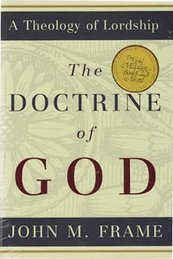The column begin with a verse from Matthew 7:7 - 8, "Ask and it will be given to you; seek and you will find; knock and the door will be opened to you. For everyone who asks receives; he who seeks finds; and to him who knocks, the door will be opened." Then it goes on to say that it is "Amazingly simple? Apparently yes." I don't quite get what it is meant by this. Simple to do what? "Apparently yes"to what? Does it mean that God would give us everything we ask for?
The column goes on to say this: "In the book of Acts, God provided the answers whenever the disciples of Christ prayed. From boldness in preaching (4:24) to the baptism of the Holy Spirit (8:15), and from raising the dead (9:40) to the release of Apostle Peter from prison (12:5), the disciples prayed and God answered."
This his write-up at their "Happenings" column is actually to ask members of FCBC to tell them that reaching out to the multitudes is not difficult, members should invite 12 people to the Miracle Weekend on 24 and 25 June is just a matter of simply asking.
I agree that inviting people to Church is just a matter of simply asking, but to a "Miracle Weekend"? Does God only work on 24 and 25 June? Of course, FCBC is not alone in this, many other churches in Singapore do this. Many of the traditional mainline denominational churches are 'guilty' of this too. Do we really need miracles to convince non-believers? Doesn’t Romans 1:16 says that the gospel is “the power of God for salvation to everyone who believes”. Can’t the Gospel alone converts people – brings them to faith and repentance? Doesn’t Romans 10:17 says, "So faith comes from hearing, and hearing by the word of Christ." And 1 Peter 1:23-25 says, "You have been born again not of seed which is perishable but imperishable, through the living and enduring word of God. . . . And this is the word which was preached to you." So it is true that we are born of God and converted by means of hearing the powerful word of God, the gospel.
Another article "The call for revival" I read at the Agora Forums wrote this:
God promised the outpouring of His Spirit in the last days. That means to say that, God's Spirit will be more evident in the last days. We will see more and more people, prophesying, sharing their vision, performing healing and miracles etc. When we see these things happening more and more, we can say that the Lord is coming soon and that His work is being increased so that more people will know Him and that His church will be ready for His coming. (emphasis in bold is mine)
A cursory reading of what he wrote seems to make sense, but on a closer reading, there is some problem with it. (I must say that I do agree with him on certain points. ... but whether I agree is not important! If they are biblical, they are biblical.) Yes, we live in the last days. The Bible makes it clear that the last days began when Jesus arrived. "Last Days" refers to the entire period between the first and second advents of our Lord Jesus Christ. If this were the case, we would have been hearing a lot about miracles for the last 2000 years. From Church history, we see that this is not true! Maybe, he's saying that we are living in the latter portion of the last days before our Lord Jesus returns. ...
"When we see these things happening more and more, we can say that the Lord is coming soon and that His work is being increased so that more people will know Him and that His church will be ready for His coming."
This statement disturbs me. Is the work ("more and more people, prophesying, sharing their vision, performing healing and miracles etc.") being increased "so that more people will know Him"? Doesn't we know God by his words alone? Isn’t the Word of God alone enough? Doesn’t Romans 10:17 says that as we hear (or read) it, it is able to develop faith in our hearts, and this it does through the evidence it presents (cf. Jn 20:30-31)? As I read, I found the writer's reasoning not only unsound but also worrying. Does this reflect the general view of Charismatic Christians in Singapore? If so, the problem is not a small one, if one were to consider their numbers. [By the way, big doesn't mean better. If one were to say that the fact that they are bigger churches means that God is blessing them, I would disagree. Many cults are also growing, for example Mormons continues its rapid growth. According to the The Charlotte Observer (February 26, 2005), Mormons are the fastest-growing church in the United States and had rose to No. 4 of the country's top 10 churches, according to annual church membership figures compiled by the National Council of Churches. In fact, Mormons (Church of Jesus Christ of Latter-day Saints) with a membership of 5.5 million, has even overtaken many of the country's mainline Protestant churches in terms of numbers. According to wikipedia,from 1990 to 2001, the Mormons enjoyed a numerical growth of 12.1%. Even the Seventh Day Adventist had a numerical growth of 8.4%. In the same period, Pentecostal/ Charismatics had a numerical growth of 381%.
1) Not simply acts designed to stir wonder in the observers
According to Charles Hodge the systematic theologian, he explained that the word "miracle" comes "from 'miror', 'to wonder', and therefore signifies that which excites wonder (Systematic Theology, Vol I, pg. 617). We know that God has worked supernaturally, but his supernatural workings, which we call miracles, are not simply acts designed to stir wonder in the observers.
2) It can't convince the stubborn and unbelieving
From the Scripture, it can be seen that Miracles are not simply acts of wonder performed to convince the stubborn and unbelieving. It should be remembered that very few conversions are recorded of the many who observed the biblical miracles.
Should it be used at rallies? Should it be used to convince non-Christians of God? From the above two points, I think the biblical viewpoint is a "no".
So, why did miracles occur? What is the meaning of miracles? What's its purpose?
If one were to note when each miracle took place in the bible, we can see that in each case(period), there is a clear pattern where God's plan of redemption is advanced significantly, and the truth of it is explained by direct revelation through specific chosen spokesmen sent by God. At those times, miracles were performed to authenticate the human delivering the revelation as a true representative of God.
B. B. Warfield wrote that miracles "... belong to revelation periods, and appear only when God is speaking to His people through accredited messengers, declaring His gracious purposes." (Miracles, p. 25) Geerhardus Vos explains that associated with major events in God's work of redemption, a period of special revelation occurs to explain the event. He points out that such "objective-central acts" are "never entirely left to speak for themselves; they are preceded and followed by word-revelation." (Biblical Theology, pp. 14-15)
In the Gospels, we see that it was not the miracles alone which brought men to faith. It was belief in what our Lord said. In the final analysis, one must respond by faith to the works of our Lord as writted in the four gospels. One must place their faith in the Person of Jesus Christ who came to bear the penalty for our sins and to provide the righteousness which God requires for salvation. Ultimately, it is the condition of our heart that determines our response to Jesus Christ and not the spectacular works which He performed.
In Luke 16:30-31, we read: " 'No, father Abraham,' he said, 'but if someone from the dead goes to them, they will repent.'
As B. B. Warfield (1851-1921) writes,God does not, "deal with men atomistically, and reveal himself and his will to each individual... this is the mystic's dream. It has not, however, been God's way. He has chosen rather to deal with the race in its entirety." The miracles have a larger purpose than the immediate benefits they may extend to the individuals directly involved (Miracles p. 26). (emphasis in bold is mine)
Does all this mean that God does not perform miraculous things today? Of course not. Miracles still happens today. Dr. Reymond, of Covenant Theological Seminary, writes, "I do not deny that miracles of grace and remarkable answers to prayer occur today. I do however question the occurrence today of what are referred to as genuine miracles of power." (What About Continuing Revelations... P. 43) By "miracles of power", it means the deeds done by God's power over his creation beyond the way he made it to ordinarily operate. In other words, miraculous activity and gifts, as they are being promoted today, have always been the exception and not the general rule. Historically, these signs and wonders as seen in the early church had simply ceased. There were occasional occurrences, but this was not the norm. Even giants of the faith, men like Spurgeon who experienced some phenomenal things, did not believe in the continuation of signs and wonders as they are seen in the NT.
May our Lord grant us a faith which does not rely on what can be seen(miracles), but on Him, Jesus Christ.
References:
Benjamin B. Warfield, Counterfeit Miracles. (London: The Banner of Truth Trust, 1996). pp.326.
Berkhoff, Louis, Systematic Theology.
Hodge, Charles. Systematic Theology. 3 Vols. Reprint Edition.
Reymond, Robert L. What About Continuing Revelations and Miracles in the Presbyterian Church Today? (Philadelphia: Presbyterian and Reformed Publishing Company, 1977).
R. C. Sproul, The Last Days According to Jesus (Grand Rapids: Baker, 1998).
Ridderbos, H. The Gospel According to Matthew (Grand Rapids: Zondervan, 1987).
Vos, Geerhardus. Biblical Theology - Old and New Testaments.



No comments:
Post a Comment